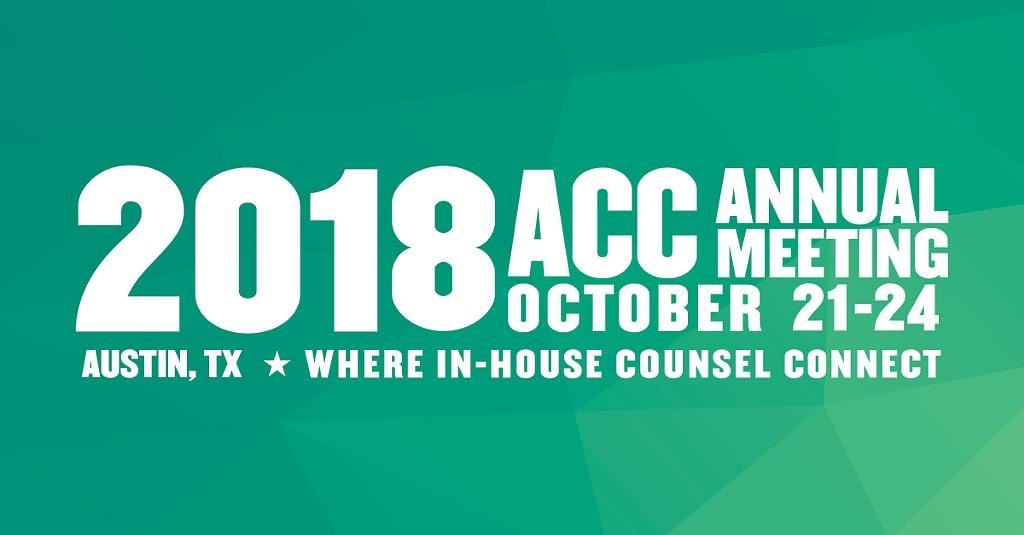Dealing with Generational Shifts in the Workforce: ACC 2018 Keynote

How many generations do you work with in your organization? Three? Maybe four? Does your frustration level ever rise due to how different generations work or their expectations?
These questions were just a couple that Jason Dorsey, co-founder and president of the Center for Generational Kinetics, asked the audience, spanning four generations, during his opening keynote at the 2018 Association of Corporate Counsel Annual Meeting.
Generations are not a box to put people in, but they provide clues and are highly predictive to gain an understanding of people of various ages. The predictability of generations is largely derived from two things: parenting –how one was raised; and technology – everyone has a different natural relationship with technology depending on their age.
Dorsey emphasized that everyone should “be open to the idea that some of what you have heard about generations is not true.” And regardless of where a person may be categorized, every generation brings value to the workforce and still has something they can learn. Referencing many forms of innovation or technology that have come and gone, Dorsey noted that “technology is only new if you remember the way it was before; otherwise it is all that you have known.”
Capitalizing on that lens, Dorsey walked through multiple attributes, as well as some light-hearted moments of certain stereotypes of Baby Boomers, Gen X, millennials, and Gen Z.
Typically older than most people assume, and against popular belief, millennials are the largest generation in the workforce. Millennials also are the most diverse generation in the workforce and expect diversity in their organization at all levels.
Gen X’ers tend to be extremely loyal, but more to individuals than organizations.
Gen Z have been heavily impacted by the Great Recession as they saw their parents lose jobs, homes and possibly even more, and therefore try to be fiscally responsible. And they are extremely tech-empowered, but believe they will have to work harder and longer to get a promotion.
Baby Boomers view work ethic by hours per week and are not sure if you are working unless they can physically see you in the office. Baby Boomers are still the most influential generation in the workforce through their vast experience and tenured relationships, and they largely control access to capital.
For all generations, the lens through which they have experienced the world is a major defining attribute. For millennials and Gen Z, 9/11 is a landmark date for different reasons. If someone only knows of 9/11 from a historical viewpoint, they fall into Gen Z. But if they remember that day, they are a millennial. Dorsey shared a personal experience related to 9/11 and how he viewed the incident, compared to his father (impacted by Vietnam War) and his grandfather (influenced by Pearl Harbor). Each generation has moments that define many of their attributes.
Every generation brings something important to the workforce and all are needed. And to help the wide-ranging generational workforce thrive, communication is still key. Dorsey suggested specific examples be provided about the performance expected as well as ongoing feedback. Dorsey closed the presentation by encouraging the audience to look past why someone did something and try to understand why they did not do something, noting the reasons why “people don’t do something is always more powerful than why people do something.”
Thomson Reuters surveyed more than 150 attorneys working in corporate legal departments in late 2016 and the results showed most legal departments are unprepared for the influx of this generational shift. Since then, has your legal department adapted for this impending change? The survey report, The Generational Shift in Legal Departments: Working with Millennials and Avoiding Baby Boomer Brain Drain, is available here.